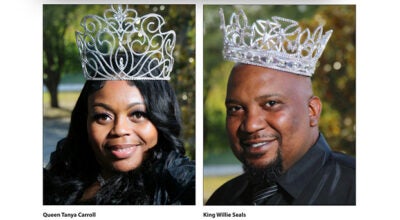Literary series focuses on legacy of Ellen Douglas
Published 12:01 am Sunday, October 26, 2014

Josephine Haxton wrote under the pen name Ellen Douglas. The Natchez native was nominated for a National Book Award in 1973 for her book “Apostles of Light.” Douglas died in 2012.
When Mama sat down to write, Ayres Haxton knew there was always a chance bits of his life might show up.
“She constructed everybody, all the characters in her books, from the people we knew, including ourselves,” Haxton said. “One of the dangers of being in the family with a writer is you never know where you are going to show up next.”
Haxton’s mother was the late Josephine Ayres Haxton, the Natchez native who wrote short stories and novels set in the fictional Mississippi locale of Homochitto County under the pseudonym Ellen Douglas.
The author of six novels, two short-story collections and a non-fiction book based on family stories and legends, Douglas is the third author selected for a literary series on the theme “The Power of Place: The Natchez Impact on Five Extraordinary Authors.”
Douglas was born July 12, 1921, in Natchez, and spent her formative years in Louisiana and Arkansas.
She attended Randolph Macon Women’s College and the University of Mississippi, earning a Bachelor of Arts degree in 1942.
She married Kenneth Haxton in 1945, and had three children, Richard, Ayres and Brooks. She spent many years in Greenville and died in Jackson. She is buried in Natchez.
Her short story collection “Black Cloud, White Cloud: Two Novellas and Two Stories” and her first novel, “A Family’s Affair,” were named among the 10 best fiction titles of the year by The New York Times.
Her novel “Apostles of Light” was nominated for a National Book Award, while her novels “The Rock Cried Out” and “A Lifetime Burning” were given the Mississippi Institute of Arts and Letters Award.
The Natchez Literary and Cinema Celebration granted her the Richard Wright Literary Excellence Award, and the National Education Association gave her grants for “The Rock Cried Out” and “Can’t Quit You, Baby.”
She received other honors, and the Mississippi Arts Commission featured Douglas and an audio recording of her reading one of her essays in its online exhibit “Crossroads of the Heart: Creativity and Tradition in Mississippi.”
Douglas is an author whose work has transcended her own life in a way that her stories and how she handled them will live on, said Mark LaFrancis, who will chair the Douglas session.
“Sadly, though, she hasn’t received the high recognition of some of the other Mississippi authors,” he said. “Nothing against them, but Douglas can stand literary toe-to-to with the greats.”
LaFrancis got to know Douglas through the NLCC, and said she had a quiet, reserved nature that never sought the limelight.
“She was such a kind, humble person,” he said.
“She’d come and mingle with the participants, much to their delight. Then she’d read from a piece of her work. Her voice was soft, very enjoyable and engaging.”
Haxton said Douglas would approach writing slowly with an eye to perfection.
“She would sit down in front of a typewriter and work from the time we left for school until just before lunch every day,” he said. “She would maybe come up with three pages, maybe one page, and then she just revised and revised and revised. When she would really get into business, it would take three years to write a 275- to 300-page novel.”
But that work wasn’t something that could be easily dismissed, and while Douglas was a soft person, her work wasn’t, LaFrancis said.
“She used that soft literary glove to take hold of some of the toughest issues of our times — racial inequality, prejudice, women, the divide between the Old South and new,” he said.
“Douglas wasn’t a social firebrand, but a weaver of stories that penetrated the mind and challenged the conventional thinking.”
The session will be 2 to 5 p.m., Nov. 1 at the Judge George Armstrong Library. Admission is free, and speakers will include Haxton and Douglas scholar Peggy Prenshaw of Millsaps College.





